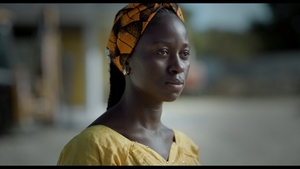2025 Edition
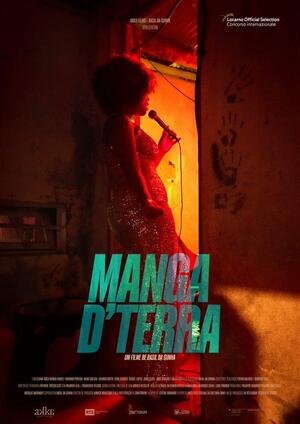

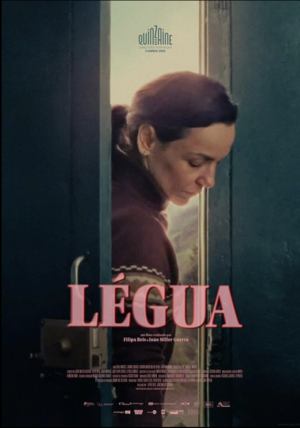
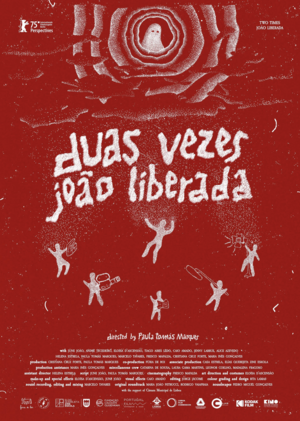
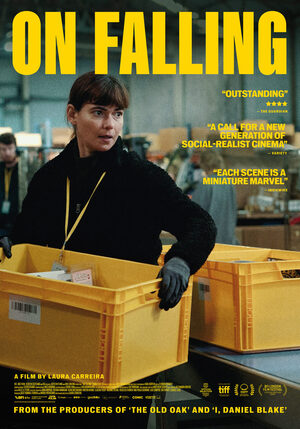
Sunday 23rd November 20:30
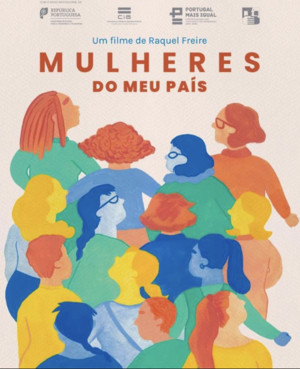
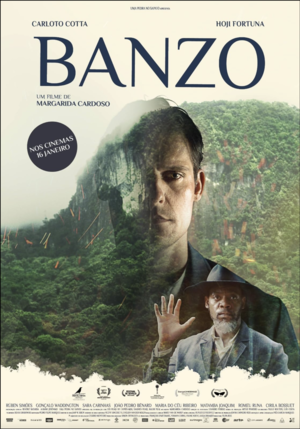
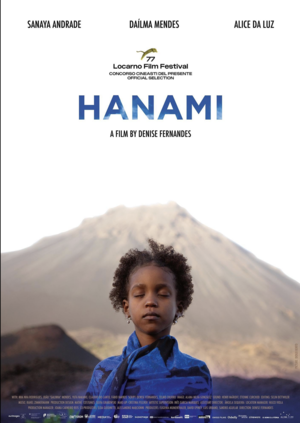
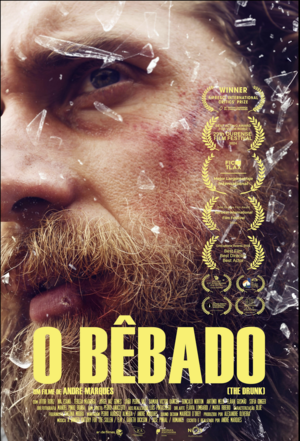
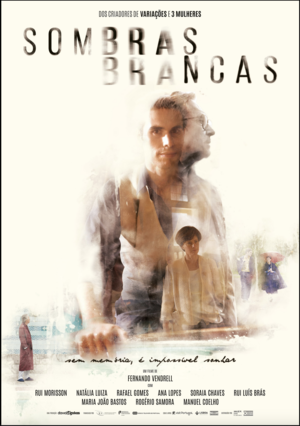
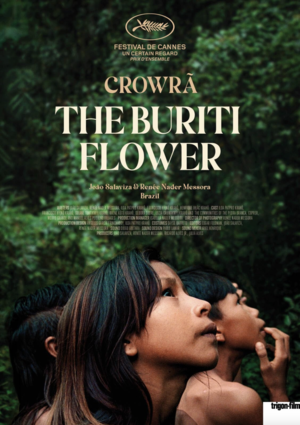
Rosa, played by singer Eliana Rosa, a 20-year-old Cape Verdean who just lost her husband and who leaves her children behind, moves to Lisbon, to seek a better life for them. In the tough Reboleira neighbourhood, Rosa faces harassment from gangsters and police violence. Amidst these struggles, she finds solace in the community's women and music, expressing her resilience and hope through song while confronting the harsh realities of migration and survival. A tribute to the people who migrate in search of a better life, a story carried by the beauty of Cape Verdean music. The film features residents and former residents of the Reboleira neighbourhood, and the soundtrack was composed by Cape Verdean musicians Luís Firmino and Henrique Silva from the Acácia Maior collective.
Set against the backdrop of colonial Burma in 1917, this epic adventure follows Edward, a British colonial officer who abandons his bride-to-be Molly at the altar and embarks on a journey across Asia. As he travels through exotic landscapes and encounters diverse cultures, Edward grapples with his fears of commitment and the weight of colonial responsibility. Undeterred, Molly follows his trail through Japan, China, Thailand, and beyond, determined to marry him. A sweeping tale of love, self-discovery, and the complexities of human relationships in a changing world.
For over four decades, Emilia, a 70-year-old caretaker, has looked after Casa da Botica, an old house in the rural village of Légua. Ana, her friend, assists in maintaining the house for its absent owners. As Emilia's health declines, Ana takes care of her while Ana’s daughter, Mónica, questions her mother's choices. The film explores three generations of women navigating their roles in a world that is rapidly fading, where the cycle of life is renovated only through inevitable endings.
João is the lead actress in a biopic about Liberada, a gender dissident persecuted by the Inquisition in the 18th century. During the film's production, João questions the director's vision of the story, especially the focus on violence, while being haunted by Liberada's spirit. The film blends reality, fiction, and reflections on queer representation in cinema.
Drama about Aurora, a Portuguese migrant working as a warehouse picker in Edinburgh, Scotland. She faces loneliness and alienation in an algorithm-driven gig economy, struggling to find connection and meaning amidst the monotony of her warehouse job and solitary life. Aurora's quiet resistance against isolation highlights the human cost of modern labour systems and digital-era disconnection. Co-produced by Sixteen Films (Ken Loach).
A powerful documentary that gives voice to Portuguese women from different realities — factory workers, researchers, fishermen, young rappers, environmentalists, trans women, lesbians, black women, gypsies — revealing experiences of resistance, dignity, and courage. From rural villages to urban centres, these women speak candidly about their experiences with gender inequality, domestic violence and the struggle for recognition in a traditionally patriarchal society, but it also portrays emancipation and the struggle for happiness, affirming an intersectional feminist vision that values plurality, rejects hierarchies of struggle and gives visibility to multiple forms of oppression and transformation. The film serves both as a historical record of what it means to be a Portuguese woman at the beginning of the 21st century and a call to action, highlighting the ongoing battle for women's rights in Portugal. (Honourable Mention at the PORTO FEMME INTERNATIONAL FILM FESTIVAL)
1907. Afonso starts life anew on a tropical island off the African coast, as a plantation physician. He is tasked with treating servants “infected” by Banzo, a profound homesickness fatal to many slaves who succumb to starvation or take their own lives. To prevent spreading, the group is sent to a secluded hill encircled by forest. Afonso tries to heal them, but understanding their spirits is a challenge stronger than any medical intervention.
On a remote volcanic island, where everyone wants to leave, little Nana learns, between tides, to want to stay. "Mother, within us, broken pieces are glued together with gold," says the protagonist Nana, anchored in the future, to her mother in the time just before her birth and before departing the island, leaving her in the care of her grandmother. Denise Fernandes' debut feature film impresses with the serenity and empathy with which it weaves a visual poem in the form of a film, both through its dramaturgy and the sequence of imagery it creates. It's an evocative journey, with elements of magical realism, exploring notions of identity and belonging as it follows the protagonist's path from childhood to young adolescence on the island of Fogo, in Cape Verde. She faces her mother's abandonment, supported by a community, with melancholy but without falling into any trauma moralism. The tone is always affectionate, focused on giving new meaning to the broken pieces. Several family members or acquaintances leave that place, while she, in contrast to the dominant narrative, achieves full emancipation—by choosing to stay. (Susana Santos Rodrigues) Hanami is one of the rare feature-length fiction films shot in Cape Verde and among the firsts made by a Cape Verdean female director.
Contemplating the failure of his life, Rogério drinks until losing control of his actions and involves himself in a bar brawl. His alcoholic drift takes him to the city port, where he falls asleep while watching passing ships. When a young woman appears in the night, seemingly running from something, Rogério offers to help and enters a nightmare he never imagined it could become his.
At 71 years old, notable writer José Cardoso Pires suffers a stroke which affects his discourse and his ability to interact with the world around him. Unable to communicate, the writer no longer recognizes words; he can no longer articulate them or even write them down. Sombras Brancas is a narrative about overcoming disease, a clear manifesto on coming back to life and a reconciliation with the world through the writing of José Cardoso Pires. This is a free and original adaptation of the writer’s unique oeuvre DE PROFUNIDS, VALSA LENTA; and an act of homage to its author.
The Buriti Flower follows Patpro through three eras of her indigenous Krahô people’s history in the Brazilian Amazonian forest. Despite relentless persecution, guided by ancestral rites and love of nature, the Krahô persistently resist efforts to erase their culture and land. The film blends ethnography and poetic narrative, portraying cultural tradition, political resistance, trauma, and resilience through the lives of Patpro, her daughter Jotàt, and shaman brother Hyjnõ.


